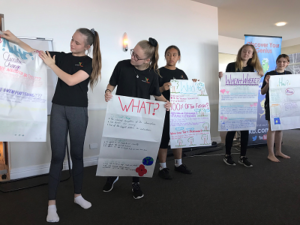 As educators, we have a profound responsibility to prepare our students for success in life. One transformative approach to achieving this goal is purpose-based learning. This method aligns education with the unique developmental stages of children from infancy to early adulthood. In this blog post, we will delve into the significance of purpose-based learning and how it can be customised to suit the diverse needs of students aged 0 to 21.
As educators, we have a profound responsibility to prepare our students for success in life. One transformative approach to achieving this goal is purpose-based learning. This method aligns education with the unique developmental stages of children from infancy to early adulthood. In this blog post, we will delve into the significance of purpose-based learning and how it can be customised to suit the diverse needs of students aged 0 to 21.
Infancy to Early Childhood (0-6 years): Laying the Foundation
During this foundational period of development, children are forming their basic cognitive, social, and emotional skills. Purpose-based learning can be implemented by:
1. Sensory Exploration (0-2 years): Introduce activities that engage a child’s senses, like textured materials, music, and sensory play. This helps infants and toddlers begin to make sense of their world.
2. Imitative Play (3-6 years): Encourage imaginative and imitative play to foster early social skills and creativity. Activities like pretend play, dress-up, and storytelling align with this developmental stage.
Middle Childhood (7-11 years): Cultivating Interests and Values
As children enter the middle years, they are developing a sense of self and forming interests and values. Purpose-based learning can be tailored to:
1. Exploratory Projects: Provide opportunities for students to explore their interests through projects and research. This encourages them to develop a sense of purpose and a love for learning.
2. Community Involvement: Engage students in community service projects, instilling a sense of social responsibility and empathy for others.
Adolescence and Early Adulthood (12-21 years): Shaping Futures
In adolescence and early adulthood, students are preparing for the future. Purpose-based learning can be the key to guiding them:
1. Career Exploration: Assist students in identifying their passions and career goals. Internships, career-focused projects, and mentorship programs can help them gain a sense of purpose in their educational journey.
2. Service Learning: Encourage students to tackle real-world challenges through service learning projects. This not only fosters a sense of purpose but also equips them with critical life skills.
3. Global Engagement: Promote global awareness and engagement through projects that address international issues, fostering a sense of global citizenship and responsibility.
By aligning purpose-based learning with the stages of child development, educators can ignite a lifelong passion for learning and empower students to find their purpose in life. This tailored approach ensures that education is not a one-size-fits-all endeavour but a personalised journey that nurtures the individual strengths and interests of each child. As we embark on this educational journey with our students, remember that our ultimate goal is to equip them with the tools they need to find their purpose and make a meaningful impact on the world.
